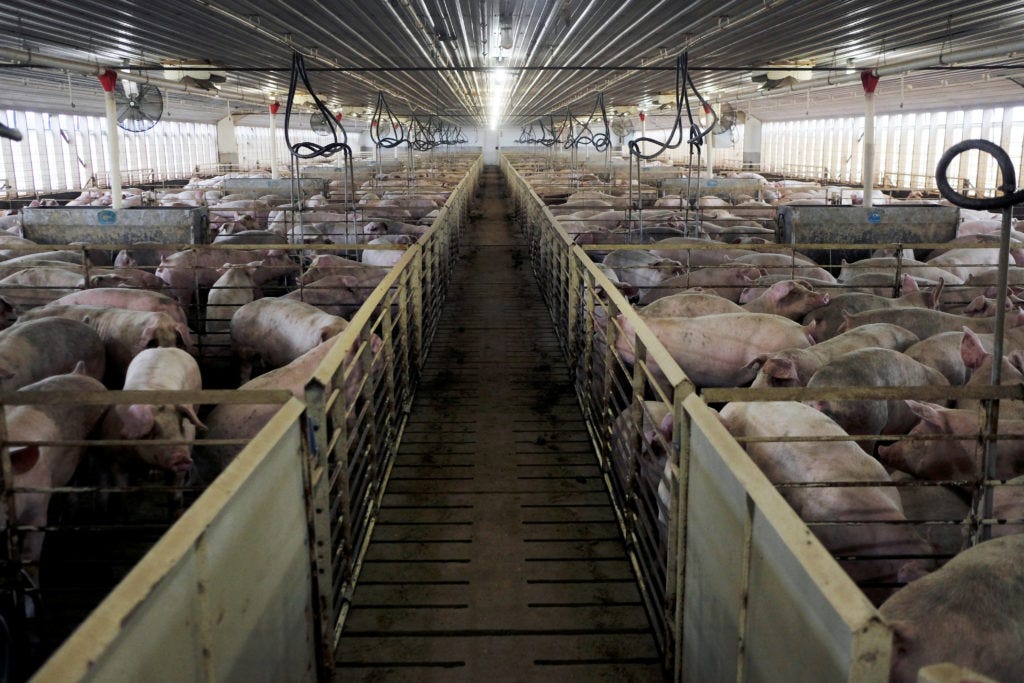We're returning to normal—is any of this normal?
Our insatiable rush backward commences.
The news that Miami Beach police were spraying pepper balls at Spring Breakers hit my Twitter feed with alarming impact. My eyebrows furrowed. How is a tourist destination more well protected than the Capitol?—my first thought. I clicked on the video. The race of the crowd was immediately apparent.
Of course.
It’s not a pass. Flooding the future Atlantis to get it all in seems too on-brand for America. We’re the most impatient society in an anxious world. We’ll gladly sprint to nowhere in order to not be right here.
Predictions of a Roaring Twenties-return were cast over a year ago. This is a different century, though, one in which the center can’t hold; there is no middle ground when there’s this much distance between us—financially, philosophically, everything.
We’re rushing to return to a place that no longer exists.
Now that society is opening back up—defined, predominantly, by the resurgence of business—will we frantically demand that lost time be made up? Do we feel that much of a debt is owed? Is our desire to consume so powerful that the rebound will erase the minor gains we’ve made?
One of the more disturbing stories I recently covered involves the monarch butterfly, whose population in North America is rapidly collapsing. In total, over 40 percent of insect populations are in decline, with one-third of species in danger of extinction. Yet a startling 1.4 billion jobs around the world depend on pollinators. With the loss of insects, our food supply (a giant economic driver of society) goes with them.
Another gain we’ll quickly lose is noise pollution. A 2011 World Health Organization report notes that excess noise contributes to learning problems with "reading comprehension, memory, and attention,” while exposure to high levels of noise during childhood has a negative "lifelong effect on educational attainment." Cities, by the way, regularly emit noise above 85 decibels, high enough to cause such damage.
Jeff Bezos’s place as the world’s richest man was greatly aided by the pandemic, yet his forthcoming drone fleet is only going to add to the increasing cacophony. We seem to trade health for convenience at every turn.
The most disturbing story I covered in 2020 was on factory farms as ideal vectors for the spread of pandemics. Some of the earliest and biggest COVID outbreaks occurred in such warehouses. That further viruses will spread from these factories is not in question. It’s only a matter of time.
But we must rush back to normal.
None of this is normal.
A number of hopeful thought pieces extolling the valuable lessons of the pandemic have been published. Truly, some of us have grown during this time of forced reflection. In fact, my last article of 2020 gave voice to my own hopes.
A deeper appreciation for science
Letting go of the unnecessary
Remote work as our new reality
Remembering that community matters
A renewed focus on climate change
Of course, disparities even infect dreams. Remote work offers numerous benefits, including cutting down on commute time, saving on unnecessary office space, and flexible schedules, yet it is reserved for those who can land such jobs. The gig economy is the reality of too many, which is carving a renewed path toward feudalism.
Still, climate change sticks out most. Humans are reactive creatures, not proactive thinkers. We’ll wait until after mass shootings to discuss our national gun fetish, hope something gets done, then forget about it until the next mass shooting. Likewise, as storms increase in power and frequency and climate migration begins, we’ll create piecemeal solutions that protect the privileged while the rest of us battle for scarcer resources.
We can hope for better—we can even scream about it on social media—but without action, hope is impotent. Rushing back to revisit our terrible habits is guaranteed to create more suffering. Tragically, we appear primed to follow this path. Claiming the higher moral ground might make individuals feel better about the choices they’ve made, but unless the entire society pushes back against the coming tide, we’ll all be swept away.
When Joe (Paul Raci) offers Ruben (Riz Ahmed) the opportunity to search for silence every day at 5 am in “The Sound of Metal,” the first morning is a disaster. (“Why is he destroying a perfectly good donut?” my wife remarked.)
We knew where the narrative was leading us: eventually, his daily meditation pays off. Ruben settles into the skin of a deaf man—sort of. He dreams up an opportunity to pay for the expensive surgery that would restore his hearing, then follows through on it.
Only—it’s not really his hearing. The muffled, tinny voices and scattershot street sounds provide no comfort. Silence is more rewarding. The closing image—Ruben sitting on a bench in Paris, having come to terms with the fact that he lost both his love and his hearing—is cathartic. After months of agony, he accepts his new normal.
America is not normal.
What are we willing to settle for?






Love the comparison to this brilliant movie. It was so hard for Ruben, physically and mentally painful. I’m sadly certain America could never make the painful journey to a new normal.